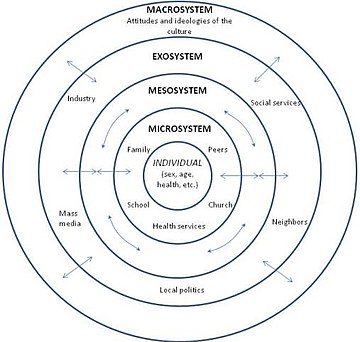I don't really think that's the problem the OP is trying to get to, though.
Indeed, I am still not sure i fully understood your concern.
I think the problem is that we put way, way too much emphasis (again, here in America at least) on the implicit infinitude of the will -- the "you can always try harder" mentality.
Well, in my world the important things don´t seem to be achievable by "trying hard", but rather the opposite is the challenge (but I guess that´s besides your point, again.

)
So, if speaking of things that can only be achieved by "trying hard" (and I know there are many of them in the capitalist world of competition) - what other options are there than "trying harder" or giving up?
Thus, "try harder (or adjust your ambitions)" seems to be a good advice in these fields. So i guess that understanding the message as "If you want to achieve that goal, all you can do is to try harder" would already help. I am not sure it needs to be understood as "you can always try harder".
But to your good question, I'd say lack of will power needs a good "kick in the rear" by ideas and even certain emotions (tempered anger, etc.) from others to cause us to believe different things and also (as part of this package) build up more motivation. So the best way to deal with it is to have good friends, family, a good community.
While I agree on the importance of friends, family, community and supportive input, I am not sure how the first part of this paragraph is not describing an external push based on the idea that the person can try harder (even though it might not necessarily come with the explicit message "try harder!").
Well, I think I have a pretty good track record with opening up discussion with threads, despite going into lots of detail in presenting pretty complicated arguments sometimes -- but hey, the world is very complicated when you get to the things I like to write about, and (importantly, at least for me) writing them down here has the advantage of helping me figure them out as I write them and also through constructive criticism by others.
Here´s hoping you didn´t misunderstand my remarks as criticism of the fact that you open threads or how you present your questions (I usually find your threads quite intriguing). I just meant to tell you why I personally sometimes don´t feel like responding even though I find the topic quite interesting.
Seeing how the line between intellectualizing and overintellectualizing is vastly subjective, I don't know if I can question you further about this.
Yes, it´s quite subjective, and I meant to express that by putting the "over" in parentheses and adding a question mark.
So possibly "intellectualizing" would be sufficient as a description of why I perceive a communication gap. Let me expand on this in response to your question further down.
I also find your posts to be dense -- and I mean that in a good way, and perhaps can even see them as "over"intellectualized in the way you're talking about regarding me, which is why I often don't get around to responding to them, or respond to them slowly many times, given their depth and the thought put into them.
That´s odd, because I´d like to think that I am getting less and less intellectual the older I get, and somehow I was hoping that this would show.

But what do you mean when you say that these posts are "part of the problem rather than part of the solution"?
Well, just for clarification: I didn´t (mean to) say that your posts are part of the problem, but that the concepts you use to approach the topics with are part of the problem.
Personally, I am convinced that our concerns aren´t caused by the outside world but by our ideas about it (I think Epikur was the first guy to verbalize this idea, at least in Western cultures).
Thus, as soon as we accept the thought system in which the problem comes up as the basis for our further contemplations there can´t be a solution. A solution isn´t possible on the level on which a problem appears - it is only possible on the next level.
Now, the question is: Does "next level" mean: More abstractions, even more intellectualizing? I confess that this used to be my approach. I don´t believe in it anymore.
You say "this issue is complex, complicated". I, on the other hand, tend to think that issues become "complex/complicated" only when we try to approach them by analyzing them in a digitalized manner. Yes, the world is analogous - it has all shades of grey and colours. That´s the beauty of it. This beauty tends to be lost (and tends to be perceived as complication, and easily as a problem) when we try to digitalize it.
So, to illustrate my problem with your posts in a more or less good analogy: You tend to present your concerns in long sequence of 0´s and 1´s. And i feel that there´s no way to calculate a solution.





